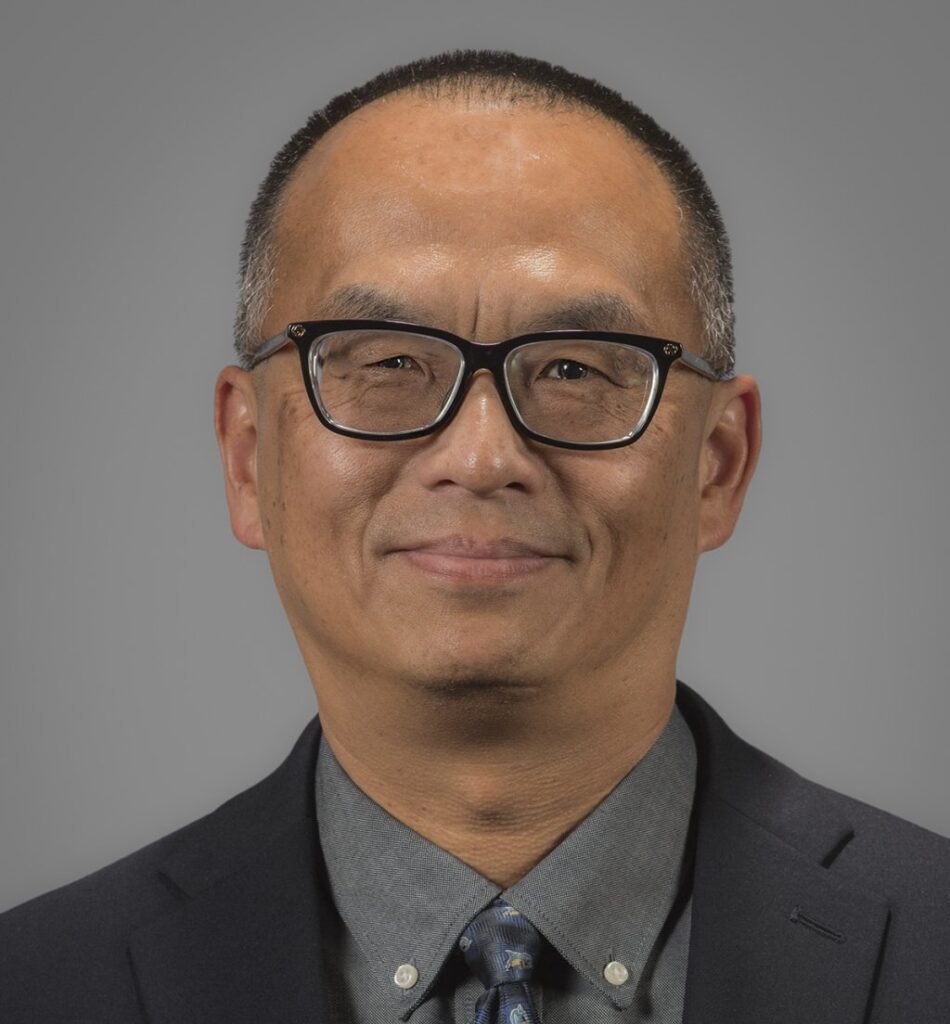National Doctor’s Day: Dr. Paul Kuo’s journey to surgeon in chief

From serving two tours in Afghanistan to being a role model as a father of three, Paul Kuo’s journey in his medical career was anything but traditional as he joined USF in 2017 as the Richard G. Connar Endowed Chair in Surgery at the Morsani College of Medicine, one of the highest academic positions available in USF.
“The winds of change accompanied Dr. Kuo’s arrival at USF in the fall of 2017 and continue to blow favorably for our department,” said John Cha, surgeon and associate professor at USF Health. “Transparency, inclusiveness and mentorship are hallmarks of his leadership. His dedication to the success of the department as a whole is outstanding.”
In high school, Kuo discovered his passion for medicine early on while working in a laboratory at the Harbor-UCLA Medical Center in Los Angeles. There, he met then-Chief of Pathology Paul Fu, who took him under his wing and showed him the different types of medical specialties at the learning hospital.
As the only son of immigrant parents from China, Kuo felt pressure to impress his mother and father, who held him to high standards and wanted him to become a physician or pursue another profession in service to others.
From childhood, Kuo’s parents preached a “never-give-up” work ethic he’s practiced his entire life.
“I remember my mom saying charity and service was not something that was really an inherent part of Chinese culture … since it was all centered on family and that charity outside of family wasn’t something that was even part of the conversation,” said Kuo.
“In coming to America, charity toward others outside of the family was something that was encouraged and held to a high esteem and [my mother] felt that for her, and in particular me, to do that would be a good thing.”
With a variety of colleges to choose from after high school, Kuo ultimately decided to attend the California Institute of Technology (Caltech) — a school almost entirely dedicated to science and engineering.
“I decided to go to Caltech which is probably the direct opposite in producing a well-rounded student,” said Kuo.
“I used to joke that at Caltech there were a couple buildings for biology, a couple buildings for chemistry, a bunch of buildings for math and physics, but there was one floor in one building that was called ‘the department of liberal arts and humanities.’ That was sort of where it stood in those days.”
After obtaining a bachelor’s degree in human biology from Caltech, he graduated from the Johns Hopkins University School of Medicine in 1985 and went on to specialize in abdominal transplant surgery. Following his graduation, Kuo spent 10 years at Duke University serving as division chief of general surgery and seven years as chairman of surgery at Loyola University Chicago.
His cultural upbringing as an Asian American played a significant role in the success of his career in medicine, as his parents instilled in him a strong mental fortitude.
“One of the things my parents also ingrained in me, and I’ve tried to impart to my kids, are just the elements of having a strong work ethic — that there are times when you are asked to do things that are difficult … but you need to do them,” said Kuo.
”There are components of teamwork … being a good teammate, and doing what is necessary for the success of the team and trying to put your own desires to the side. Also, the idea, certainly in medicine, that I think really served my daughter well … is the idea that you don’t go home until the work is done.”
That level of perseverance was put on full display in 2014 when, at the age of 53, Kuo enlisted in the U.S. Army as a general surgeon, serving tours in Afghanistan as a part of Operation Freedom.
Kuo’s self-proclaimed “spur of the moment” decision to join the military was inspired by his son who was a junior in the U.S. Naval Academy at the time. He admired his son’s dedication to service and wanted to follow suit.
“I always wanted to do something like that in terms of payback … I felt pretty confident doing what was expected of me as a surgeon in the army,” said Kuo.
“I just wanted to at least think that I could provide great medical care to the sons of other people in the hopes that if my son were to be injured, which can certainly happen doing the times of things he does, he would receive equally good care.”
His influence as a leader, surgeon and professor at the Muma College of Business teaching information systems and decision sciences has highlighted his continued dedication and care he has toward his students and residents, according to Michael Albrink, surgeon and associate professor at USF Health.
“I am a huge Paul Kuo fan. He is absolutely brilliant and at the same time humble. He keeps his brilliance understated. He has a kindness and love for residents in training,” said Albrink.
“To call him a role model is just not enough.”
In the spirit of National Doctors Day on Tuesday, Kuo emphasized the importance of keeping high grades and scoring well on the Medical College Admission Test, or MCAT, for anyone interested in pursuing medicine, sharing advice he said he’s given to all of his kids at one point or another — “go to class.”
“If I were to talk to myself again, I would say ‘Look, you’ll do well wherever you go because of the characteristics and work ethic your parents have drummed into you, beat into you,’ which is 90% of college,” said Kuo.







